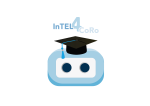Welcome to the Institute for Artificial Intelligence!
The Institute for Artificial Intelligence (IAI) is directed by Prof. Michael Beetz.
As a research institute, we conduct basic scientific research in the field of cognition-enabled robotics for everyday activities.
As part of the Faculty of Computer Science, we run strongly project-based teaching. Our hands-on projects in teaching include SuTuRoProjekt: SUTURO - sudo tidy-up-my-room, IntEL4CoRo and the annual EASE Fall School.
The IAI is member of the Center for Computing and Communication Technologies (TZI) at the University of Bremen as well as the high-profile area Mind, Media and Machines (MMM).
Research
| Funded projetcs | |
|---|---|
 | EASE (SFB 1320) is a collaborative research center for everyday activities. |
 | IntEL4CoRo provides an interactive learning environment. |
 | euROBIN is a European Network of Excellence that the IAI is part of. |
 | REMARO develops a reliable and safe AI system for underwater robotics. |
 | Tracebot enables robotic systems to understand what they do. |
| Internal projects | |
|---|---|
 | CRAM is a software toolbox for the implementation of autonomous robots. |
 | KnowRob is a knowledge processing system for robots. |
 | OpenEASE is a web-based knowledge service providing robot and human activity data. |
 | GISKARD is a framework for constraint- and optimization-based robot motion and planning control. |
 | RoboKudo is a perception framework targeted for robot manipulation tasks. |
A full overview of our ongoing and completed projects can be found here.
News
OpenEASE and RoboSherlock @ ICRA 2015 in Washington State
openEASE the web-based knowledge service for robots will be presented for the first time at ICRA. The paper presenting it offers an overview of the types of data it holds and the types of functionalists it exposes.
- Michael Beetz, Moritz Tenorth, Jan Winkler, “OPEN-EASE - A Knowledge Processing Service for Robots and Robotics/AI Researchers”.
RoboSherlock is at ICRA for the first time. It is a cognitive perception system built on top of the principles of unstructured management information.
- Michael Beetz, Ferenc Balint-Benczedi, Nico Blodow, Daniel Nyga, Thiemo Wiedemeyer, Zoltan-Csaba Marton, “RoboSherlock: Unstructured Information Processing for Robot Perception”.
Google Summer of Code 2015

The Institute for Artificial Intelligence has been selected as mentoring organization for the Google Summer of Code 2015 as one out of 137 organizations world-wide. The initiative, started in 2005, sponsors students during the summer months for contributing code to selected open source projects. This is our second year in the Google-sponsored program.
As part of our research, we are maintaining and developing the plan-based control system CRAM, allowing the specification and execution of complex robot behavior, and the KnowRob knowledge base that provides robots with the knowledge required to perform their tasks. You can find more information about the proposed projects as well as contact information of the designated mentors at our Google Summer of Code page.
European Robotics Challenge IAI teams up for the next stages
Between the 16th and 17th of December 2015, IAI Bremen's challenger team has participated in a EuRoC match making workshop held in Gatwick, UK. We have met several end-users in 1:1 meetings to discuss the details of potential use cases. The end-users are spread all over europe and showed us interesting applications for autonomous systems. The experience was positive, and we gauge that there is a real interest and a place for new robotics research and development in industrial robotics. Further, we believe that we have significant contributions to make to that research.
We are not alone in that belief, and we have received several offers for collaboration. We decided on a use case that in our opinion presented a good mix of tractability and novelty, and are currently writing a proposal with the respective end-user, due on February the 9th, to proceed to the next stages of the EuRoC. Five of the (at most) fifteen project proposals will be accepted for the next rounds, where we will encounter more challenges with increasing complexity, if our proposal can convince the EuRoC jury.
Teaching
A detailed description of most courses can be found in the Online Module Handbook of the FB3: http://apophis.informatik.uni-bremen.de:3001/.
If you are looking for lectures from past semesters, take a look at our Lecture archive.
Beside lectures and projects, we also offer thesis assignments.
Prof. Dr. hc. Michael Beetz PhD
Head of Institute
Contact via
Andrea Cowley
assistant to Prof. Beetz
ai-office@cs.uni-bremen.de
Discover our VRB for innovative and interactive research

Memberships and associations:












